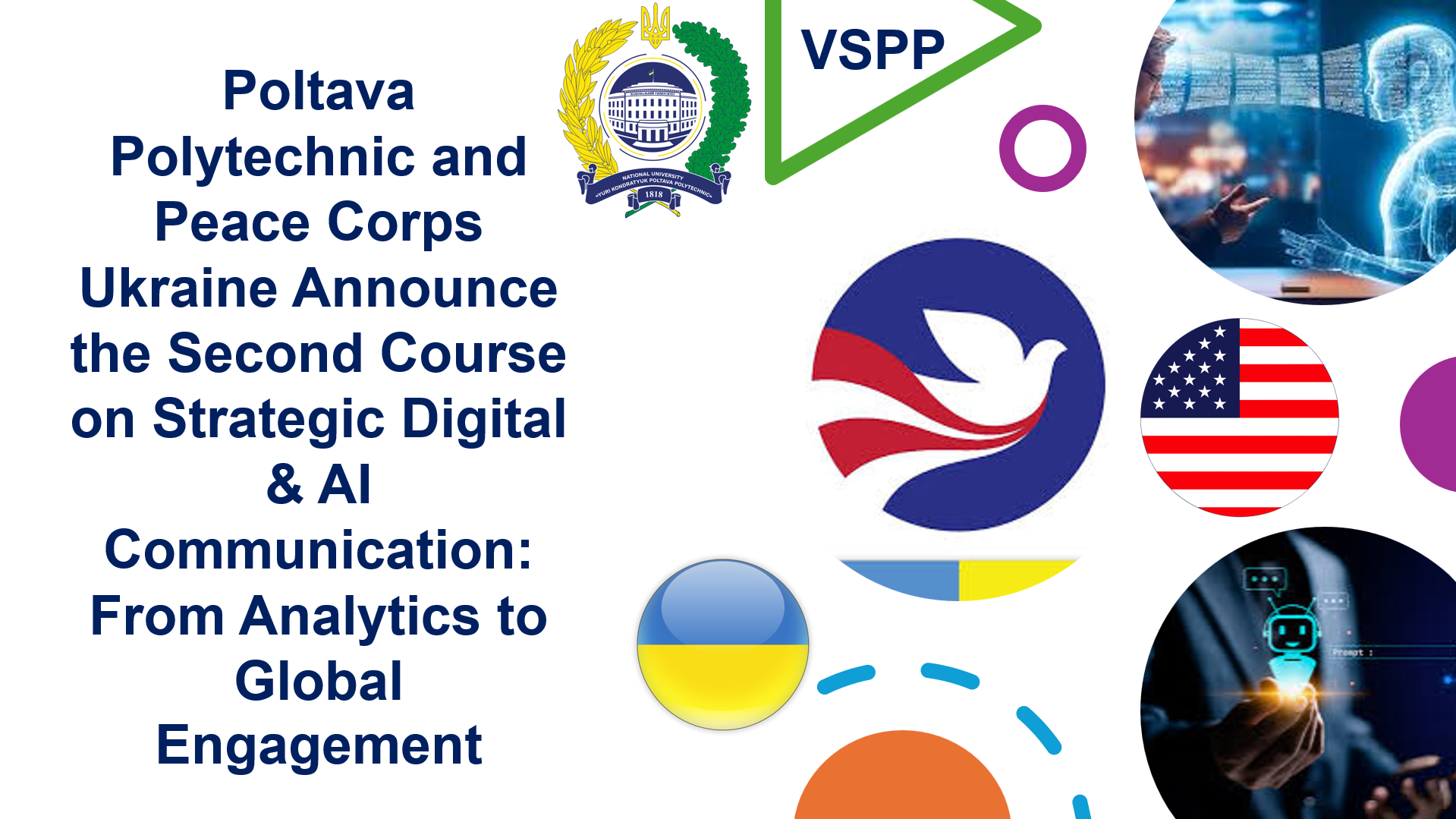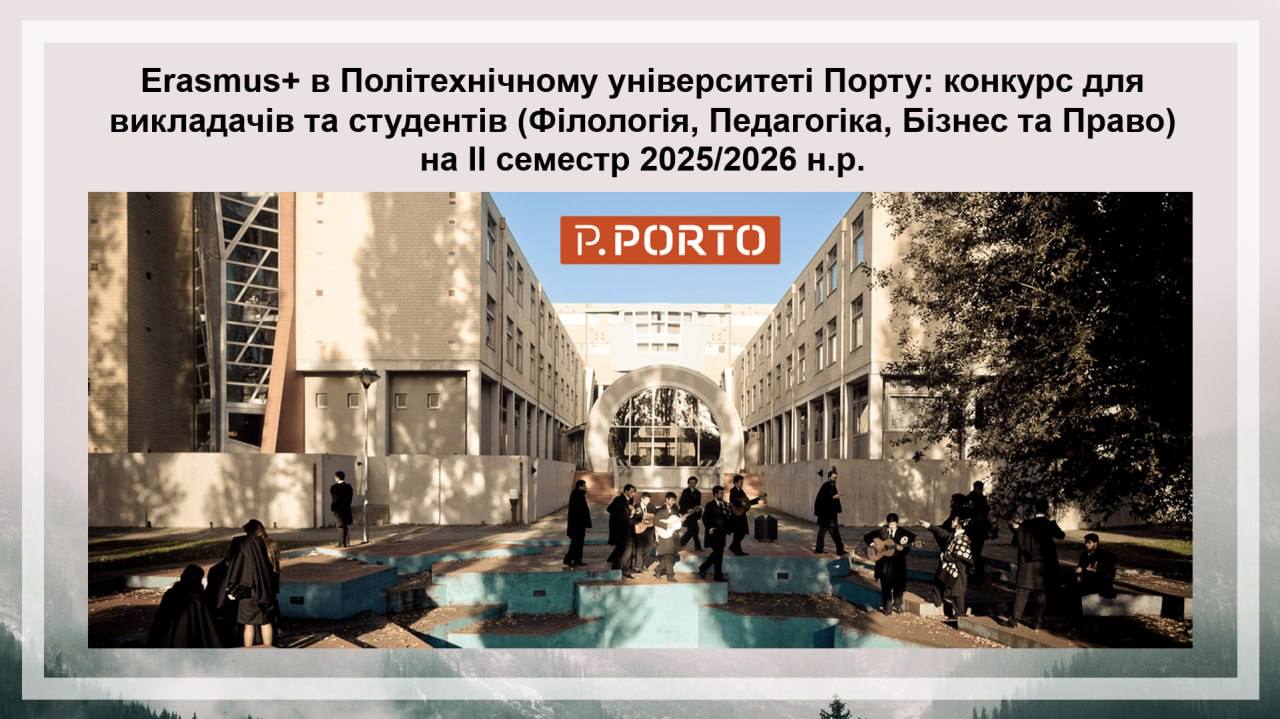On November 10-11, 2022, the largest scientific event in Europe took place in the city of Prague (Czech Republic) – the annual conference “Knowledge, Research, Education-2022”, which was co-organized by the European Council of Doctoral Candidates and Junior Researchers. The Head of the Council of Young Scientists of the Faculty of Philology, Psychology and Pedagogy of the National University “Yuri Kondratyuk Poltava Polytechnic” – Candidate of Philological Sciences, Associate Professor of the Department of Germanic Philology and Translation, External Communication Coordinator of the European Council of Doctoral Candidates and Junior Researchers Anna Pavelieva took an active part in the conference.
The Poltava Polytechnic scientist covered the scientific event on the website and on the official pages of the European Council of Doctoral Candidates and Junior Researchers (Eurodoc) in social networks, interviewed and established communication with representatives of Eurodoc national associations. Previously, the scientist took part in the meeting of the Governing Board of the European Council of Doctoral Candidates and Junior Researchers as well as in a focus session organized jointly with the Czech National Library of Technology. It should be recalled that since June 2021, Head of the Council of Young Scientists of the Faculty of Philology, Psychology and Pedagogy, Candidate of Philological Sciences, Associate Professor of the Department of Germanic Philology and Translation of the Poltava Polytechnic Anna Pavelieva is responsible for the organization's external communication and media coverage of its activities.

The annual conference “Knowledge, Research, Education-2022” (abbreviated as KRECon) has been held in the Czech National Library of Technology since 2010 and serves as a platform for discussions among postgraduate and doctoral students, young scientists, recognized scientists, international experts, stakeholders and all interested participants in educational process, the scientific field in order to discuss the issues faced by graduates of higher education institutions, postgraduate students, doctoral students and young scientists.
The key topic of this year’s conference was young scientists as “drivers of innovation in society” and the issue of increasing the effectiveness of the postgraduate and doctoral students training.

If previously postgraduate students and doctoral students studied with the aim of building a career in an academic environment, today many of them go to work in industry or business after defending their scientific dissertations due to better career prospects and a much higher salary. In addition, the number of postgraduates and doctoral students in Europe has increased significantly in recent decades, which has completely changed the career prospects of PhDs. One of the challenges that young scientists face after the defense of theses is that, on the one hand, the number of jobs in the academic environment is smaller than the number of postgraduate and doctoral graduates, and, at the same time, the need to transfer their knowledge and skills to specifically non-academic sphere is increasing. The above-mentioned questions became the subject of lively discussions among the participants of the conference from different countries of Europe as well as Ukraine.

The two-day conference consisted of three sessions and corresponding panel discussions:
Session 1: Effective Doctoral Schools
Melita Kovačević – former Vice-Rector for Research at the University of Zagreb (2006-2014), professor of the Department of Speech Therapy and Speech Pathology, head of the research laboratory and scientific director of the doctoral program “Language and cognitive neuroscience” spoke about the modern challenges of postgraduate and doctoral studies, about the evolution of doctoral education from 2005 to 2022 and the dissemination of knowledge through original research as the main component of doctoral training (according to the Salzburg Principles, 2005), the formats of doctoral schools as well as the structure and financing of doctoral programs and the peculiarities of their evaluation; on the elimination of legislative obstacles to the implementation of changes. The speaker emphasized the importance of diversity, the acceleration of changes that need to be implemented and the balanced quality of doctoral education across Europe.
David Bogle, Vice-Chancellor for Doctoral Studies at University College London (UCL), emphasized that there is no single way to achieve a quality doctoral education, but that future researchers should be trained as social innovators and noted that the training of creative and critical intellectuals requires above all transparency and academic integrity in research, a favorable research environment, and advised to listen to the needs of postgraduate and doctoral students as well.
Pavel Doleček, Vice-Rector for Strategic Cooperation and Development at Charles University in Prague, Deputy Minister for Higher Education, Science, and Research, presented statistics on the training of postgraduates and doctoral students in the Czech Republic as well as talked about the prospects of doctoral schools and the development of doctoral education programs. The speaker also familiarized the audience with the results of a survey on the effectiveness of doctoral schools in Europe.



Session 2: Research Careers in and beyond Academia
Dario Capezzuto, European Commission Policy Officer for Research and Innovation, presented the European Research Area 2020-2022, the European Research Agenda, the European Competence Framework for Researchers, the taxonomy of skills and professions for researchers in ESCO and the main challenges facing researchers: unstable working conditions associated with cross-border and temporary contracts; the skills provided to PhD students are only suitable for an academic career, while researchers have to work outside of academia as well. Dario also emphasized that higher education institutions and industry should work together to provide young scientists with the relevant skills they need.
Giulia Malaguarnera, Secretary of the Marie Curie Alumni Association (MCAA), OpenAIRE Public Relations Officer and former President of Eurodoc, informed the audience about academic mobility and career prospects for young researchers, the history of the founding of the MCAA as well as the mobility programs offered by the MCAA to researchers, in detail focused on the peculiarities of geographical and intersectoral mobility for young scientists.
Pavel Matějka, rector of the University of Chemistry and Technology in Prague, professor of chemistry, guarantor of the doctoral program “Molecular chemical physics and sensorics” as well as scientific secretary of the Ioannes Marcus Marci Spectroscopic Society, presented to the audience the results of the “DocEnhanc” survey conducted to identify the employment situation, satisfaction of those receiving higher education with doctoral training, etc. A lot of attention has also been paid to the factors affecting the career development opportunities of the Doctor of Philosophy.



Session 3: Good Practices for Doctoral Training
Conor O’Carroll, founder and director of SciPol Services Ltd, an independent consultant on policy and financing of scientific and higher education, an active researcher of national and European policy in the field of science, scientific and technological development, higher education as well as researchers mobility policy, presented the report “Why postgraduate and doctoral studies are the path to success”, in which he noted that since 2007, the global population of researchers has increased by 21% to a total of 7.8 million, while the total number of academic and research positions is significantly lower, leading to such problems as stress and uncertainty, financial worries, mental health issues, inability to meet deadlines, difficulty maintaining work-life balance.
Lucas Zinner, Head of Research and Career Development at the University of Vienna, presented a report on improving the effectiveness of postgraduate and doctoral programs. In his opinion, the working culture of researchers should be collaborative, inclusive, creative, safe and secure, and scientists should have enough time to fully focus on their research priorities and not worry about financial issues.
Stephanie Krueger, an independent academic consultant, spoke about the systematic development of Czech doctoral students’ skills, in particular, understanding of science and academia, career options (academic and non-academic), systematic local, inter-administrative cooperation and more.


After three sessions, a panel discussion was held among speakers, scientists, educators, representatives of Eurodoc and participants of the conference, dedicated to deliberation on the issues of higher education and possible ways to solve them.



Previously, the Polytechnic scientist mastered the digital skills of working with young people, took a course within the Erasmus+ programme dedicated to the volunteer programs of the European Solidarity Corps, studied future skills needed by educators and scientists, underwent training on the digital transformation of youth organizations, increased economic literacy and knowledge of labor legislation, studied international experience and best practices in waste recycling, improved practical skills in public speech presentation, took part in the Erasmus+ project in Turkey as well as studied media literacy in Leipzig.
Media Center of
National University “Yuri Kondratyuk Poltava Polytechnic”


